ECPD Educational and Scientific Board
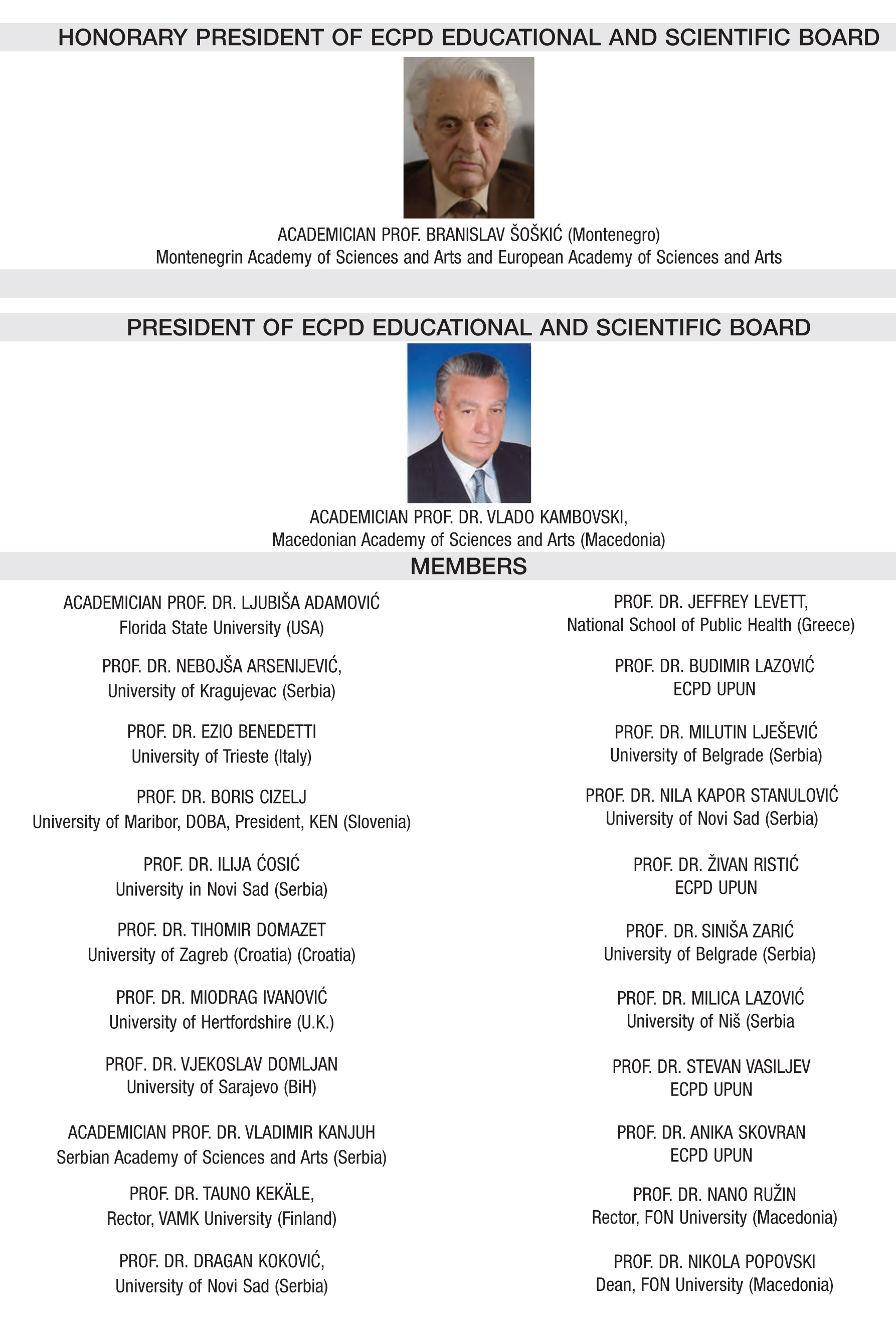
|
|

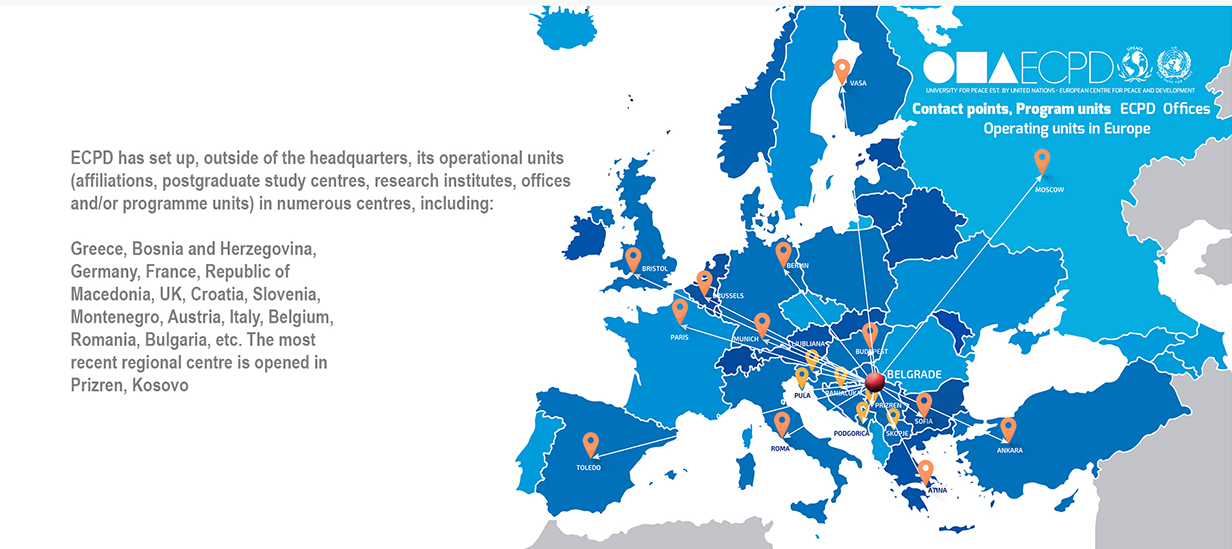
Select a site location:
The European Center for Peace and Development (ECPD) United Nations-mandated University for Peace is an international, inter-governmental educational and research organization from the UN academic system, established under the international Agreement concluded between the Government of the SFR Yugoslavia and United Nations-mandated University for Peace (“SFRY Official Gazette” – International Agreements, no. 9/85). The mentioned Agreement was registered with the Secretariat of the United Nations. According to this Agreement European Center for Peace and Development (ECPD) United Nations-mandated University for Peace “organizes and implements postgraduate studies at all levels, research and dissemination of knowledge promoting peace, development and international cooperation” (Article 1, paragraph 1, point a) of the given Agreement). The same Agreement was ratified on 15 July 1985 in the Parliament of the Socialist Federal Republic of Yugoslavia as the highest legislative body of the host country, after obtaining approvals of all republic governments and parliaments, whereby it became in its entirety an integral part of its legislation as lex specialis and as such is still effective today, which is also proved by the fact that the ECPD has implemented and organized postgraduate (specialist, master, MSc and doctoral) studies since its foundation and issued appropriate diplomas by which the host country or any other member of the UNO or any of the countries created in the territory of the former Yugoslavia ever denied its legal validity.
We emphasize that the European Center for Peace and Development (ECPD) United Nations-mandated University for Peace is a European institution of the UN-mandated University for Peace and operates in the territory of the Helsinki Europe. The United Nations University for Peace was established by the Resolution 35/55 of the United Nations General Assembly in 1980 whereby it was granted a mandate to support peace and security goals of the United Nations through programs of education for peace and development worldwide. In accordance with the Charter of the University for Peace, approved by the UN General Assembly, "University was established with the clear aim to provide the humanity with an international higher education institution for peace”. To that end, the University and ECPD as its European campus are authorized by the General Assembly, inter alia, "to grant master's degrees and doctorates". This unique world-wide authorization to award academic degrees, recognized by all member countries of the UN General Assembly, has been the basis of the work of the UN University for Peace and ECPD, as its European part ever since their establishment. UN University for Peace and ECPD have performed this mandate for more than 30 years by carrying out international educational postgraduate programs at specialist, master and doctoral levels, research, training and dissemination of knowledge, fundamental to the peaceful and prosperous development of societies and individuals.
The UN University for Peace and ECPD as its European part are authorized by the United Nations General Assembly to organise postgraduate, specialist, master and doctoral studies and to issue diplomas based on the unique authorization to award degrees contained in the original Charter. We wish to underline that the diplomas of the European Center for Peace and Development UN University for Peace are also recognized in the Republic of Serbia.
Agreements concluded with the states and state entities of the former Yugoslavia
In pursuing its statutory capacity to negotiate and conclude agreements with the relevant national, regional and international institutions and organizations relating to the execution of its mandatory tasks and objectives, the European Center for Peace and Development concluded the following agreements with the states/state entities of the former Yugoslavia:
Government of Host-Country
The Agreement regarding the establishment of the Headquarters of the International Regional European Center for Peace and Development, on the 22 October, 1984;
The Agreement was ratified by the Yugoslav Assembly, in July, 1985.
Following the legal succession of SFR Yugoslavia and State Union of Serbia and Montenegro, the Government of Serbia, accepted and assumed all international obligations.
Government of Montenegro - Agreement on Long-Term Cooperation in the International Transfer of Knowledge System of 28 July, 1994.
In accordance with the provisions of this Agreement, the ECPD elaborated, inter alia, the program of efficient transition of Montenegro to a society of democratic institutions and free market economy; numerous ECPD international specialist courses and postgraduate studies programs were organized and carried out in Montenegro and a comprehensive research project titled “Development Trends of Montenegro as an Ecological State” was conducted.
On April 23, 2006 in accordance with the Agreement, the ECPD Council brought the Decision to establish the ECPD Mediterranian Institute in Podgorica, Montenegro.
Government of the Republic of Srpska (BiH entity) the Agreement on Long-Term Cooperation in the Transfer of Knowledge Systems for the Republic of Srpska Development in April 1999.
The Agreement stipulated building three main pillars of development of the Republic of Srpska, Bosnia and Herzegovina:
· Improvement of the organization and functioning of public institutions;
· Economic development, including of SME development; and
· Social development.
Government of Macedonia, the Agreement on the Establishment of the ECPD Regional Institute for Development Studies Seated in Skopje. The Institute is tasked to focus on the following:
The Institute performs its tasks and objectives by organizing and carrying out postgraduate studies at specialist and master’s levels: ECPD organizes its specialist courses through this Program Unit, and seminars, research activities, consulting and publishing activities. In the meantime, a dozen of postgraduate specialist courses and seminars in the academic year 1999-2010 a series of postgraduate programs and research projects was implemented, while in 2004/2005 several round tables and conferences were held in Skopje.
The ECPD pays special attention to cooperation with other states, former Yugoslav republics. In that respect, on January 27 - 28 2003, a team of high ranking ECPD officials, consisting of Prof. Dr Norman Scott, President of the ECPD Executive Board, Dr. Negoslav P. Ostojić, ECPD Executive Director, and Dr Živojin Jazić, ECPD Special Advisor, visited the President of the Republic of Croatia, Mr. Stjepan Mesić. During their discussion, a general agreement on the opening of ECPD office in Zagreb was reached:
· The possibility of opening an ECPD office in Zagreb;
· Cooperation in organizing the 4th World Scientific Banking Meeting (WSBM) in Dubrovnik;
· Organization of ECPD International Postgraduate Studies in Management in Zagreb, Croatian University Center; or some other
Cooperation in the above mentioned matters is still under consideration.
Agreement and Protocols Concluded with National and International Organizations, Academic and Scientific Institutions, Municipal Governments and Others
The European Center for Peace and Development, concluded cooperative agreements and protocols with more than 200 national and international organizations, universities, academic and scientific institutions from different countries. Some of them are listed below:
Agreement on Cooperation, concluded with the Yugoslav Chamber of Commerce, 12 May, 1986.
Agreement concluded with the University of Zagreb on carrying out the ECPD International postgraduate studies. In accordance with this Agreement of June 20, 1989, the Assembly of Zagreb University brought the decision to accept the ECPD as an associate member of the University.
Agreement on Cooperation in the Field of Traditional Medicine, concluded with the International College of Acupuncture and Electrotherapeutics, New York, USA, 1989.
Agreement concluded with the Serbian Medical Association, June 6, 1990.
Agreement on Long - term Cooperation in the Field of Traditional Medicine and Biomedical Studies, concluded with the Hellenic Hippocrates Foundation, Athens, Greece, October 10, 1990.
Agreement on cooperation in the field of traditional medicine and acupuncture concluded between the ECPD and the WHO Collaborating Center for Traditional Medicine – Acupuncture Institute of the China Academy of Traditional Chinese Medicine;
Annex to the Agreement concluded with the WHO Collaborating Center for Traditional Medicine – Acupuncture Institute of China Academy of Traditional Chinese Medicine – China Beijing International Acupuncture Training Center, February 2, 1991.
Agreement concluded with the Faculty of Medicine, University of Belgrade, January 1, 1992.
Agreement on Long-Term Cooperation in the Field of Traditional Medicine of the Russian Academy of Science, concluded with the Scientific and Research Center of Traditional People's Medicine of the, Moscow.
Annex to the Agreement concluded with the Scientific and Research Centre of the Traditional People's Medicine of the Russian Academy of Science, Moscow, 5 March, 1992.
Protocol on Mutual Understanding with the University of Novi Sad, Serbia, 1993.
Agreement concluded with the Faculty of Medicine, University of Novi Sad, for cooperation in the realization of the program, “ECPD Long-Term International Scientific - Research and Educational Program in Medicine, with Particular Stress on Biomedical Research, New Technologies in Medicine, Management of Health - Care Institutions, Traditional Medicine and Health Psychology”, May 27, 1994.
Agreement on Long-Term Cooperation in International Transfer of Knowledge Systems, concluded with the Government of Montenegro, August 30, 1994.
Agreement on Long-Term Cooperation concluded with the Technical Faculty, UniversityNovi Sad, November 22, 1994.
Annex 1 to the Agreement concluded with the Government of Montenegro for the International Transfer of Knowledge Systems.
Protocol on Cooperation concluded with the “Vasile Goldis” University, Arad, Romania, March 31, 1995.
Agreement concluded with the China Beijing International Acupuncture Training Centre, October 17, 1995.
Protocol on Cooperation concluded with the Foundation of the “Black Sea” Univesity, Constanza, Romania, March 18, 1996.
Agreement concluded with the Liaoning Overseas Chinese Corporation of Economic Trade and Labour Service – Liaoning Overseas Institute of New Medicine, February 27, 1997.
Agreement on Long-Term Cooperation concluded with the Faculty of Mechanical Engeneering of the University of Belgrade, 1997.
Agreement with the ICN Corporation on the Elaboration of the Research Project “Reengineering the ICN – Eastern Europe Corporation”, August 15, 1997.
Agreement on Long-Term Cooperation concluded with the Faculty of Physical Culture, University of Belgrade, February 5, 1998.
General Agreement concluded with the National Sports Medicine Institute of the United Kingdom, April - May, 1998.
Agreement on Cooperation in the Field of Traditional Medicine in Primary Health Care, concluded with the Federal Public Health Institute, SFR Yugoslavia, November 7, 1998.
Agreement on Long-Term Cooperation, concluded with the Government of the RepublicSrpska (Bosnia and Herzegovina) on the International Transfer of the Knowledge System for Development of the Republic of Srpska, March 23, 1999. of
Protocol on Understanding concluded between the ECPD and the University of Podgorica, Republic of Montenegro, October 24, 1999.
Agreement concluded between the ECPD and International Institute for the Unification of Private Law (UNIDROIT), Rome, on organizing in the ECPD International Postgraduate Studies in European Union Law and International Business Law, in Belgrade, January 30, 2001.
Agreement concluded between the ECPD and the Federal Academy of Public Administration – VAB International, Vienna, Austria, on the realization of the ECPD research and educational project “Balkan in the 21st Century – The Ways Leading to Building Peace and Stability in the Balkans”, October 10, 2001.
General Cooperation Agreement concluded with the John Hopkins University (CIEDRS), July 30, 2001.
Agreement concluded with the University of Veliko Trnovo, Bulgaria, September 21, 2001.
Agreement concluded with the Technical University of Grabovo, Bulgaria.
Agreement on Cooperation concluded with the Institute of Mental Health, Belgrade, January 10, 2002.
General Cooperation Agreement concluded with the International Law Institute, Washington, DC, 2002.
Memorandum of Understanding signed with the International Development Law Institute, Rome, Italy, on 28 the of January, 2002
Agreement on Cooperation concluded with the Diplomatic Academy of Austria, Vienna, Austria, January 22, 2002.
Agreement on Cooperation with the University of Trieste, Italy, 2002.
Agreement on Cooperation concluded with the International Development Law Institute, Rome, Italy, January 28, 2002.
Agreement on Cooperation concluded with the Law Faculty, University of Nis, Serbia, June 26, 2002.
Agreement concluded with the Municipal Assembly of Novi Pazar, Serbia, for establishing the ECPD International Program Unit for the ECPD international postgraduate studies in Novi Pazar, November 9, 2002.
Memorandum of Understanding signed with the University of West England, Bristol, UK, 2002.
Agreement on Cooperation with the University of Kragujevac, Serbia, December 11, 2002.
Agreement on Cooperation with the HELP, German International Relief Organization, 2003.
Agreement on Long-Term Cooperation with the Institute for International Relations, Zagreb, Croatia, 2003.
Agreement on Cooperation with Enajsta Academy, Ljubljana, Republic of Slovenia, 2003.
Agreement on Cooperation with the Faculty of Sport, Ljubljana, 2003.
Agreement on Academic cooperation, concluded with the University of Pristina, Kosovska Mitrovica Branch, May 20, 2004.
Agreement concluded with the Municipal Assembly of Zenica, Bosnia and Herzegovina Federation, for the International Transfer of Knowledge Systems, for the Zenica – Doboj district development.
Agreement concluded with the municipal authorities of Leskovac, Serbia, 2004.
Agreement concluded between the ECPD and the Regional Government of Sombor, Serbia, for the establishment of the ECPD Program Unit in Sombor, February 24, 2005.
Agreement concluded with the Municipal authorities of Gornji Milanovac, Serbia, for tourisam development in Gornji Milanovac and Surrounding Area, for the elaboration of the research project, “Strategy of Long-Term Tourism Development of Gornji Milanovac and the Surrounding Area”, May 11, 2005.
Memorandum of Understanding between the ECPD and the University of Pristine, Kosovo, 2006.
The aims of the Memorandum is to explore goodwill that exists between the two parties for the establishment of further specific agreements and forms of cooperation, as well as to commit themselves to mutually beneficial collaborative projects in teaching, research, consulting and educational programs. Concluding this Memorandum was suggested and supported by the UMNIK, Pristine Office.
Agreement on the Establishment of the ECPD Regional Center for International Postgraduate Studies and Development Research with Headquarters in Prizren, Serbia Municipality of Prizren. (Kosovo) was concluded between the ECPD, UNMIK and Municipaliy of Prizren.
In accordance with the Agreement, the ECPD Regional Center organizes international educational programs of postgraduate studies (specialist, masters and PhD levels) and programs of postgraduate professional advanced (seminars, courses, summer schools and the like), as well as development research projects. The ECPD Regional Center, started organizing international postgraduate studies in Prizren and Pristina in the areas of: Management, Technology of Solving Development Problems, Law of the European Union and International Business Law, and in Economic Diplomacy in the academic year of 2006/2007.
Agreement on Long-Term Academic Cooperation between the ECPD and University of Tuzla (B&H Federation), 2007. The Agreement stipulates, inter-alia the signatories, to cooperate in the field of education.
Research and consultative activities, including:
· Postgraduate studies (master’s, PhD and post PhD levels);
· Postgraduate professional and advanced training (organization and conduct of international postgraduate schools, courses, summers school and seminars);
· Elaboration of research projects.
Agreement for Academic, Scientific and Cultural Cooperation between the European Center for Peace and Development and the Diplomatic Academy of Ministry for Foreign Affairs of Russian Federation, 2007 for:
· Joint research activities in areas of mutual interest;
· Exchange information in areas of mutual interest;
· Exchange of professors, researchers and students to carry out joint projects in the fields of cooperation that are established.
Memorandum of Understanding signed on December 13, 2007, between the United Nations Interim Administration in Kosovo acting of behalf of the Provisional (Self-Government) Institutions in Kosovo (Ministry of Education, Science and Technology) and the European Center for Peace and Development. The Memorandum was signed by Agim Veliu, Minister of Education, Science and Technology and Anil Vasisht for UNMIK on behalf of the PISG, and H.E, Prof. Takehito TOGO on behalf of the ECPD. The Memorandum stipulates the establishment of the ECPD Regional Center for Postgraduate studies and Development Research in Kosovo. The ECPD Regional Center located in Prizren will organize international postgraduate studies in the following areas:
· Master Studies in Management;
· Master Studies in Technology of Solving Development Problems;
· Master Studies in Law of the European Union and International Business Law, and
· Master Studies in Economic Diplomacy.
The Center is authorized to organize and conduct specialist advanced training as a form of postgraduate education in the mentioned areas.
MEMORANDUM OF UNDERSTANDING, signed between the European Center for Peace and Development and University of Vaasa, Finland
The Memorandum was signed on January 29, 2007 by Prof. Matti Jacobson, Rector of the University andby Dr Negoslav P. Ostojić, ECPD Executive Director on March, 2007. In accordance with the Memorandum, the two parties 'recognized the goodwill already existing between them, as a dynamic element of facilitating development and additional specific agreements and forms of cooperation'.
The Memorandum stipulates the scope of cooperation in teaching, research, consultancy and postgraduate educational programs, as well as the ways of its implementation, modes of cooperative management, financial and legal responsibilities and the like.
ANNEX to the MEMORANDUM OF UNDERSTANDING on Academic and Scientific Cooperation between the ECPD and the University of Vaasa, Finland.
The Annex stipulates additional cooperation provisions prescribed in the above mentioned Memorandum in the following:
Memorandum of Understanding (General Bilateral Agreement) signed between the European Center for Peace and Development and Instituto di Sociologia Internationale di Gorizia, Italy, on October 28, 2007. The signatories committed themselves to explore mutually beneficial collaborative projects in teaching, research, publishing, consultancy and educational programs, including the exchange of professors and experts.
Cooperative agreement concluded between the Miontenegrin Academy of Sciences and Arts and the European Center for Peace and Development, on 25 July 2007. The Provisions of the Agreement stipulate, inter-alia, the organization of the joint teams, expert groups, and/or other forms of organized works regarding the development and elaboration of research projects and studies, as well as the organization and holding of international meetings, programming and conduct of postgraduate studies.
The AGREEMENT for Academic and Scientific Cooperation between the European Center for Peace and Development and University of Belgrade, Republic of Serbia.
The Agreement was signed by Prof. Branko Kovačević, Rector of the University, and Prof. Dr. Takehiro Togo, President of the ECPD Council on June 20, 2008. It stipulates long standing links between academic staff groups of two institutions and goodwill developed throught the existing contacts, exchange of information about postgraduate studies and research projects. The text of the Agreement also prescribes the aims and the ways of cooperation, cooperative management, corresponding financial aspects, and the like.
The AGREEMENT on Long-Term Academic Cooperation between the European Center for Peace and Development and the Faculty of Philosophy of St. Cyril and MethodiusUniversity in Skopje, Macedonia.
The Agreement stipulates cooperate in the fields of educational and research activities, specifying that the 'educational activity should be deemed to mean:
The AGREEMENT on the Establishment of the ECPD Regional Institute for International Postgraduate Studies and Development Research with the seat in Montana (Bulgaria), concluded between the European Center for Peace and Development and the Montana Municipality on October 6, 2008. The Agreement stipulates inter alia, the organization and conducting of postgraduate studies in Montana.
The Agreement also prescribes more precisely forms of cooperation in both fields and states that the signatories will prepare special ANNEXES to the Agreement concerning the joint postgraduate studies and postgraduate training, which will be integral part of the Agreement.
The Agreement on Academic, scientific and cultural cooperation between the European Center for Peace and Development (ECPD) and the Complutence University of Madrid, Spain on October 23, 2008. The Agreement stipulates cooperation in the following activities.
· Joint education and research in the areas of mutual interests
· Exchange of information in the area of mutual interest for both Universities;
· Exchange of professors, researchers and students in order to carry out joint projects in the relevant fields.
The Agreement on Long-Term Academic Cooperation, concluded between the European Center and the Faculty of Natural Sciences and Mathematics, University of Podgorica, Montenegro, on March 13, 2009. The Agreement is based on the Agreement concluded between the Government of the Republic of Montenegro on the Long-Term Cooperation in the International Transfer of Knowledge Systems on July 28, 1994, and the Protocol of understanding concluded between ECPD and the University of Montenegro on October 24, 1999. The Agreement stipulates cooperation between the two parties in educational and scientific-research activities, including the organization and conduct of:
§ Postgraduate studies at master's and doctoral levels;
§ Specialist advance training (specialist schools, innovative courses, seminars and the like)
§ Scientific research aimed atr: a) improving of instructions at the Faculty, and b) Planning of the integral sustainable development of the Montenegro.
Agreement on Long-term cooperation concluded between the Office for Sustainable development of the under-developed areas if the Republic of Serbia and the European Centre for Peace and Development (ECPD), of February 3, 2009. Signing this Agreement, the two parties expressed their good will to establish and sustain continuous cooperation in achieving main aims and objectives of the "Strategy of the regional development of the Republic of Serbia 2007-2012" and its implementation.
In accordance with the Agreement, the main areas of cooperation include organization and conduct of postgraduate studies at master's and doctoral levels, as well as the organization and conduct ov advance training, that is specialist courses, seminars and the like with the main objectives – contribution to achieving sustainable development in the under developed areas as a prerequisite for stable peace and stability in the country and its surroundings.
The Memorandum of Understanding between the European Center for Peace and Development and International Centre for Promotion of Entrepreneurship, Slovenia, signed on May 24, 2010. According to this MoU, the parties committed themselves exploring mutually beneficial collaborative projects in teaching, research, consultancy and postgraduate educational programs, including the exchange of expert and teaching staff of both institutions. Projects are expected to focus on the activities to support and enhance the process of transition, development, stability and reconciliation in South-Eastern Europe, and other European and Mediterranean areas, with particular attention to the Western Balkan states.
The Agreement between the Government of Kosovo and the European Center for Peace and Development (ECPD) for establishing the ECPD Regional Program Unit in Nova Gračanica, Kosovo. The Programs to be delivered at the University will be in accordance with the best international practices and complementary to the current programs and courses of universities in Kosovo, taking care of the long-term social, human and economic development of Kosovo and the region, as well as of the European integration process. As for the students composition and teaching process, the University will be multi-ethnic and multi-lingual. The Agreement was signed on May 26, 2010, when it also came into force.
The Agreement Concluded between the European Center for Peace and Development and the Municipality of Nova Gračanica. This Agreement is based on the Agreement concluded between the Government of Kosovo and ECPD, on May 26, 2010.
The Memornadum of Understanding concluded on May 31, between the Ministry of Health and Social Protection of the Government of the Republic of Srpska, Municipality of Banja Luka, and the Chamber of Commerce of the Republic of Srpska, on one side, and the European Center for Peace and Development (ECPD), Foundation "Health and Heart" and the Unicredit Bank on the other side. The MoU stipulates inter-alia, the definition and realization of the "Jonit Venture" Program, which is realized by the "Health and Heart" Foundation in cooperation with the European partners - the Development Programs and European Charter/Millenium Declaration.
The Agreement on Academic and Scientific Cooperation concluded on September 6, 2010, between the European Center for Peace and Development and the MT&M College, Republic of Bulgaria. The main aim of the Agreement is to extend and deepen the already established cooperation between the signatories in the fields of education and research.
The Treaty signed on October 20, 2010, by the Rector of the Juraj Dobrila University, Pula, Croatia, and the ECPD Executive Director, whose provisons stipulate cooperation between the two institutions in carrying out postgraduate studies in Euopean Union Law and International Business Law.
The Agreement on Academic and Scientific Cooperation concluded between the European Center for Peace and Development of the University of Ljubljana, Slovenia. The aim of the Agreement is to strengthen and deepen the already existing academic and scientific ties between the two institutions, placing emphasis on all areas of mutual interest, educational and research programs.
The Treaty concluded on November 11, 2010, between the Faculty of Health, University of Zenica, Bosnia and Herzegovina Federation, and the European Center for Peace and Development for the organization and conduct of under-graduate and master studies. The Treaty is based on the Agreement - long standing cooperation concluded between the Government of the Zenica Canton and other relevant treaties and stipulates cooperation in the organization and conduct of under-graduate and master studies within the Faculty of Health, University of Zenica.
The Agreement concluded on November 30, 2010, between the International Slavjanski Institute "G.R. Deržavin", Republic of Macedonia and the European Center for Peace and Development for longstanding mutual cooperation. The Agreement stipulates, inter alia, cooperation in the organization and conduct of advanced training and the elaboration of research projects.
Agreements Concluded with Academic Institutions of Other European and Some Non-European Countries
The European Center for Peace and Development has established cooperation with renowned universities and institutes in a number of European countries. Thus, for example, the ECPD has concluded agreements on academic cooperation in postgraduate studies and scientific research with, inter alia, the Universities of Cranfield, Hertfordshire, Bradford and University of West England (UK); Black Sea and Arad University (Romania); Trieste University; International Institute for Unification of Private Law (UNIDROIT) and University of Trento (Italy); "Leonardo da Vinci" University and University of Paris I (France); "Lomonosov" University (Russia), Universities of Kyoto and Osaka University (Japan); Federal Academy of Public Administration, (Diplomatic Academy of Austria and Center for Legal Competence, Vienna (Austria); Johns Hopkins University - Center for International Emergency of Disaster and Refugee Studies, International Law Institute, Washington, D.C. (USA) and Castilla - La Mancha University, Toledo (Spain), etc.
The European Center for Peace and Development (ECPD) devotes considerable time and efforts to the fulfilment one of its major tasks – to carry out research activities intended to contribute to the solution of acute and chronic problems in general, and in the region of South East Europe in particular. Therefore its research activities are undertaken mostly in the following circumstances:
• In accordance with the needs and requests of interested institutions, governmental, national and international organizations, and
• Upon the ECPD estimates of the situation and identification of acute and chronic problems which solutions could be interesting for some national or international organizations, public and private enterprises.
The ECPD research activities and studies are based on a synergistic, and multidisciplinary approach. They are performed by prominent, internationally known scientists, experts and researchers brought together from various parts of the world and organized in appropriate research teams.
Carried out
In the past eighteen years, the ECPD has conducted a few dozen research projects related to the issues of human and natural resource development, economic and technical development and the like. Some of the ECPD research projects were made in association with, and supported by, such international institutions as UNESCO, UNIDO, WHO, the International Agency for Atomic Energy etc. However, most of the ECPD research projects were made at the requests and for the needs of the Government of Yugoslavia, the ECPD – host country.
The ECPD has carried out the following research activities:
1. For the needs and in cooperation with UNESCO, ECPD elaborated the following research projects:
"Human Rights and the Right of disfavoured Groups and Disabled Persons to a Better Life", 1988, and "Research into the Consequences of Armament and Conditions that Favour Disarmament", with the following sub-projects:
• Research into the Consequences of Armament and Conditions that Favour Disarmament,
• Developing a General Theory of Disarmament, and
• Contribution to the Founding of a Radical Theory of Responsibility, 1989.
2. At the request and for needs of the International Agency for Atomic Energy, Vienna, Austria, the following ECPD research has been made: "Guidelines for Elements of Industrial Feasibility Studies for Radiation Technology Projects", 1989.
3. The European Center for Peace and Development elaborated the following research projects and/or studies at the request and for needs of the Government of Yugoslavia (SFR, FR), and the State Union of Serbia and Montenegro, the ECPD host-country.
• "System and Policy of Spurring the Development of Underdeveloped Regions in the SFR of Yugoslavia", 1990.
• "Development Policy of Underdeveloped Regions – Classification and Comparative Analysis of the Practice of some European and non – European Countries", 1991,
• "Federal Fund" – A Study of experience in crediting a faster development of economically underdeveloped regions of the SFR of Yugoslavia, 1991.
The Yugoslav Development Bank Organization, 1991,
• "Reintegration of the Returned Emigrants from Foreign Countries and Employment of the Refugees and Displaced Persons", 1992.
• "Damages Caused by the Disintegration of the Former Yugoslavia", 1993.
• "Reconstruction and Revival of the Economy and Social Activities in the Ex-Yugoslavian Republics", 1993,
• "The Impact of Sanctions on the Economy and Society of the FR of Yugoslavia" – In the international Prospect, 1998.
Development of Montenegro as an Ecological State", a research project on Sustainable Development of the Republic of Montenegro, 1999.
• "Strategy of Far-reaching Sustainable Development of the Novi Pazar region". The Project was elaborated as per needs and acquisition of the Novi Pazar (Serbia) Municipal Assembly.
4. In cooperation with the UN Office for Project Services – UNIPOS, the following ECPD research project was elaborated: Danube – The Artery of the European Cooperation", 1998.
5. For needs of the multinational company ICN – East Europe, ECPD carried out the following research projects:
"Policy and Systems of Training Managers and Specialists in ICN – East Europe", 1996.
• "Re-engineering projects":
• "Re-engineering: The Marketing and Sales Functions",
• "Re-engineering: The Financial and Accounting Functions of the Company".
Projected
Turning to the future, the ECPD already has on the drawing board a number of forward looking projects on the regional basis (The Balkans/South-east Europe) and of the acute and chronic issues.
Being at the centre of a sensitive, unstable and underdeveloped area, the European Center for Peace and Development in planning and programming its current and future research activities focuses its attention towards the Balkan region. In that respect the ECPD launches its major project: The Balkans in the 21st Century - The Ways Leading to the Improvement of Peace of and Stability" ("The Balkans 21").
More...
ECPD Strategic Scientific-Research Project Inclusion of Montenegro into Euro-Atlantic Integrations
Impact of Sanctions upon Economy and Society of the FR of Yugoslavia in an International Perspective
ECPD Research projects made for the Government of former Yugoslavia
ECPD Research Project made for the ICN Company
Research Project elaborated for IAFE
Research projects elaborated for UNESCO
ECPD research project for the Government of the Republic of Montenegro
Research projects elaborated for the Municipality of Novi Pazar
Research Project elaborated for the Municipality of Gornji Milanovac
Research Project Additional Therapy with Heloxor and Iscador in Breast Cancer Patients
CLIMATE CHANGE DEMANDS INNOVATIONS IN PEOPLE'S LIVES
The Balkans in the 21st Century
Education for Peace
Sustainable Development

The European Center for Peace and Development (ECPD) was awarded the Peace Messenger Award by the United Nations Secretary General, in recognition of its significant contribution to the programme and objectives of the International Year of Peace (1987), proclaimed by the United Nations United General Assembly.
The European Center for Peace and Development has established cooperation with a number of international and regional organizations:
· United Nations Educational, Scientific and Cultural Organization (UNESCO);
· United Nations Industrial Development Organization (UNIDO);
· United Nations Conference on Trade and Development (UNCTAD);
· United Nations Center for Transnational Corporations (UNCTC);
· World Health Organization (WHO);
· Organization for Economic Cooperation and Development (OECD),
· World Bank (WB);
· International Monetary Fund (IMF);
· European Bank for Reconstruction and Development (EBRD);
· Inter - American Development Bank (IBD);
· UNCITRAL;
· UNIDROIT;
· Sasakawa Foundation, Tokyo, Japan;
· Atomic Energy International Agency (IAEA);
· Foundation of Advanced Studies in International Development (FASID), Tokyo;
· World Association of Small and Medium Enterprises (WASME), New Delhi, India;
· Japan Foundation, Tokyo,
· Japanese International Cooperation Agency (JICA)
Many of these and other international organizations and institutions, including numerous governmental and/or nongovernmental organizations, entrusted the ECPD with research related to specific development and other such problems. They have also participated in the financing of research projects, case - studies, postgraduate study programs and international meetings.
The European Center for Peace and Development has set up its operating units and affiliations (departments, offices, etc.) in several cities of its host country (former SFR Yugoslavia, now Serbia) and other European countries.
In accordance with the Agreement concluded between the ECPD and the Municipal Assembly of Sremski Karlovci (Serbia), the ECPD set up its Department for Ecological Urban Renewal and the Conservation of Old Urban Nuclei.
In accordance with the Agreement concluded with the Government of Montenegro on Long-Term Cooperation in the International Transfer of Knowledge Systems, the ECPD Specialized Affiliation for International Postgraduate Studies in Podgorica (Montenegro), was established in 1994.
Pursuing the provisions of the Agreement concluded with the Government of the Republic of Macedoniathe ECPD Specialized Regional Institute for Development Studies located in Skopje (Macedonia) was established in 1999.
In accordance with the Agreement concluded with the Regional Government of Novi Pazar (Serbia), the ECPD International Programme Unit for Postgraduate Studies was established in 2001. The provisions of this Agreement stipulate, inter alia, the opening of postgraduate studies in Management, Technology of Solving Development Problems, Law of the European Union and International Business Law and Economic Diplomacy, advanced training, as well as corresponding research activities.
In accordance with the Agreement concluded with the Zenica-Doboj Canton (Federation of Bosnia and Herzegovina), the ECPD Program Unit in Zenica was founded in 2004.
In 2006, the Agreement on the Establishment of the ECPD Regional Center for International Postgraduate Studies and Development Research with Headquarters in Prizren, Kosovo was concluded between the ECPD and UNMIK and the Municipality of Prizren. In accordance with the Agreement, the ECPD Regional Center organizes international educational programs of postgraduate studies (specialist, master’s and Ph.D levels) and programs of postgraduate professional advanced training (seminars, courses, summer schools and the like), as well as development research projects. Starting in the academic year 2006/2007 and in the academic years 2007/2008, 2008/2009, 2009/2010, 2010/2011 the ECPD Regional Center organized international postgraduate studies in Prizren in Management (Strategic Management, Financial Management, Human Resources Management, Healtih Management), MBA, Law of the European Union, International Business Law and Economic Diplomacy.
ECPD Regional Center for Postgraduate Studies and Research Activities, Banja Luka, Federation of Bosnia and Herzegovina. The Center was established and functions in accordance with the Agreement concluded with the Government of the Republic of Srpska on April 23, 1999.
ECPD Regional Institute for Postgraduate Studies and Development Research, Montana, Bulgaria. The Institute was established in accordance with the Agreement concluded on October 6, 2008.
ECPD Regional Centre for Postgraduate Studies and Development Research, Pula, Croatia. Established in accordance with the Agreement concluded between the European Center for Peace and Development (ECPD) from one and the Region of Istria and the Municipality of the City of Pula, on March 25, 2009.
ECPD Institute for Sustainable Development, Urban Planning and Environmental Studies, with the seat in Ljubljana, Slovenia. This Center was set up in October 2008, after being approved by the ECPD Council, and confirmed by the Government of the Republic of Slovenia. The Institute will operate as a program unit within the ECPD. Its anticipated activities will include: elaboration of research projects, development and conduct of educational programs related to sustainable development, urban planning and environmental studies.
ECPD Regional Mediterranian Institute for International Postgraduate Studies and Research Studies, Podgorica, Montenegro. The Institute was established by the the ECPD Council in April 2006, in accordance with the Agreement concluded between the Government of the Republic of Montenegro.
The ECPD has also established the following the ECPD offices and/or contact points in Bristol, London, Paris, Heidelberg, Trieste, Vienna, Sofia, Athens and Moscow.
· ECPD Program Unit for Postgraduate Medical and Biomedical Studies, Athens, Greece
· The ECPD Program Unit located in Moscow;
· The ECPD Office in London (UK);
· The ECPD operating units in Bradford (UK), Arad (Romania) Gorizia and TriesteItaly).
The Expansion and Diversification of Cooperation
In order to pursue its aims and perform the tasks set out in its program, the ECPD recruited many hundreds of world-reputed professors, scientists, experts and public figures from almost all parts of the world as lecturers at postgraduate courses, as well as participants in international scientific meetings, managers and authors of research projects, most of whom have made a great contribution to the ECPD activities and efforts towards peace, development and international cooperation. The participants in these ECPD activities have included the Nobel Prize winners, former and current presidents or state heads of states or/and prime ministers, academicians, theoreticians in specific fields of science, directors and high officials of international and regional organizations, professors at renowned universities, directors of research institutes. In recent years, the ECPD has engaged more than 300 prominent figures as permanent associates on a full-time, part-time and consultative basis. The ECPD permanent associates have participated in the organization and implementation the ECPD postgraduate studies and specialist training and educational programs; as the organizers and managers of the ECPD research projects/studies, as well as the chairmen of the ECPD international scientific and other meetings. Such a participation in the ECPD activities, as well as the high level of knowledge and reputation of the ECPD associates represent a response to the challenges posed by the selected projects, launched within the ECPD programs.
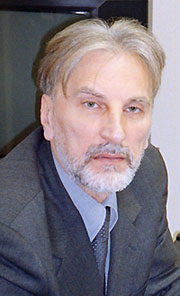 |
OSTOJIC, P. Negoslav
Executive Director of the European Center for Peace and Development (ECPD) of the University for Peace established by the United Nations, with headquarters in Belgrade.
In the capacity of ECPD Executive Director he also functions as the Director of the Regional Mediterranean Institute for International Postgraduate Studies and Development Research with headquarters in Podgorica. Full Professor of International Economics and International Development at ECPD University for Peace established by the United Nations. Born in Ivanjica (Serbia), married to Olga Dondur, Doctor-Specialist in Stomatology, one daughter Natasha, Assistant Professor of Fine Arts, painter.
Education: B.Sc. and M.Sc. at the Faculty of Economics, University of Belgrade; acquired Ph.D. and Ph.D. h.c. in International Economics from the ECPD UN University for Peace.
Professional career: Founder and President of the International Study Group which systematically deals with inter-ethnic relations, religious tolerance, human rights and human security in Europe; Founder and Editor-in-chief of the International Economic Journal, Development and South-South Cooperation, Ljubljana (1984-1989); Founder and President of the Editorial Board of the International Journal, The European Journal of Management and Public Policy, London; Founder and General Coordinator of the World Scientific Banking Meeting (WSBM – a traditional forum of leading international economic development theoreticians, renowned experts for monetary and financial issues and major international, regional and national economic, financial and development organisations from all over the world), Dubrovnik (1977-1991); Founder and Director, Strategic Project, Paths for Building Peace and Stability in the Balkans; Director, RCCDC Agency for Economic Cooperation among Developing Countries, Ljubljana, Slovenia from 1984 to 1989; Adviser, the Institute for International Scientific, Educational, Cultural and Technical Cooperation in the Government of the Republic of Serbia, Belgrade (1971-1984); President of the European Board of the International Research Institute PANSLAVIA, Wisconsin, USA (2003-2009); President (two mandates) of Chess Club “Crvena Zvezda” (“Red Star”), Belgrade (1981-1990).
Memberships: Active Member of the European Academy of Sciences and Arts, Society of International Development, Rome; Scientific Society of Economists of Serbia, Belgrade, etc.
Awards: Gusi Peace Prize Laureate for 2012, Charter for Contribution to Peace, Tolerance and International Cooperation for 2005, awarded by the ECPD UN University for Peace, Charter of the Sports Society “Red Star”(1990), Award for Building Sustainable Partnership and Education around the World by LIFE University, Georgia (2015), etc.
Author of the following books, publications, articles and other scientific papers: Debt and Development, (ECPD), Belgrade; International Financing of Economic Development, (WSBM), Dubrovnik; Doing Business with Yugoslavia, (RCCDC), Ljubljana; Yugoslav Potentials for Scientific and Technical Co-operation, (RCCDC), Ljubljana; Directory, Corporate Research, Consulting and Engineering, (IISECTC), Belgrade; Small and Medium-Size Enterprises in Developing Countries, (RCCDC), Ljubljana; SMEDC, Technical and Technological Development Marketing, (RCCDC), Ljubljana; Francois Perroux -l'homme et l'oeuvre (1903–-1987), (ECPD) Lyon (France); Future of International Monetary, Financial and Trade Cooperation for Development, Negoslav Ostojic and Dragoslav Avramovic (WSBM/ECPD), Dubrovnik; International Economic Trends and Policies. Their Effects on Eastern European Economies, Negoslav Ostojic and Dragoslav Avramovic (WSBM/ECPD), Dubrovnik/Belgrade; The Impact of Sanctions on the Economy and Society of Federal Republic of Yugoslavia in an International Perspective (Comparative experience), Negoslav Ostojic and Dragoslav Avramovic (ECPD), Belgrade; Financial and Banking System of Yugoslavia, Negoslav Ostojic and Milutin Cirovic, (RCCDC), Ljubljana; Privatization in the Economies of Transition, Negoslav Ostojic and Norman Scott (ECPD), Belgrade; Experiences and Results of Privatization in the Economies in Transition, Negoslav Ostojic and Norman Scott, (ECPD), Belgrade; Recent Lessons From Transition and Privatization, Problems of Institutions and Corporate Governance, Negoslav Ostojic and Norman Scott (ECPD), Belgrade; Sustainable Strategy of the Ecological State of Montenegro, Negoslav Ostojic and Paul-Marc Henry (Government of Montenegro), Podgorica; Strategy of the Long-term Sustainable Development of the Municipalities of Novi Pazar, Sjenica and Tutin, Negoslav Ostojić and Norman Scott (ECPD), Novi Pazar; Strategy for Sustainable Development of Tourism in the Takovo Region, Negoslav Ostojic and Milutin Ljesevic; Experiences of the Fund for Social Development of the European Council in Financing Reintegration of Refugees and Other Social Objectives, Negoslav Ostojic, Branislav Colanović, Berislav Sefer, and Yves-Rastimir Nedeljkovic, Development Fund, Belgrade; Development Policies for Underdeveloped Regions – Systematisation and Comparative Analysis of Practices in European and Non-European Countries, Negoslav Ostojic, Branislav Colanović and Todor Mirkovic, Development Fund, Belgrade; Debt Crisis in Developing Countries, ECPD, Belgrade; The Region of South East Europe, Recent Economic Development – Crisis – Exit Strategy, Vladimir Stipetic, Negoslav Ostojic and Tihomir Domazet, Zagreb; National and Inter-Ethnic Reconciliation and Religious Tolerance in the Balkans, Negoslav Ostojic and Takehiro Togo, ECPD, Belgrade, 2005, Inter-Ethnic Reconciliation, Religious Tolerance and Human Security in the Balkans, Negoslav Ostojic, Takehiro Togo and Jeffrey Levett, ECPD, Belgrade, 2006, Inter-Ethnic Reconciliation, Religious Tolerance and Human Security in the Balkans, Negoslav Ostojic, Takehiro Togo and Jeffrey Levett, Prizren (Kosovo), 2007, National Reconciliation and Human Security in the Balkans, Negoslav Ostojic and Takehiro Togo, ECPD, Belgrade, 2007, National Reconciliation, Inter-Ethnic and Inter-Confessional Tolerance in the Balkans – Reconciliation and Human Security, Negoslav Ostojic and Takehiro Togo, Miločer (Montenegro) 2008, National and Inter-Ethnic Reconciliation, Religious Tolerance and Human Security in the Balkans, Negoslav Ostojic and Takehiro Togo, Brioni Islands (Croatia) 2009, Reconciliation and Human Security in the Balkans – Implementation of the Human Security Concept, Negoslav Ostojic and Takehiro Togo, Brioni Islands (Croatia), 2010,New Balkans and the European Union Enlargement, Negoslav Ostojic, Takehiro Togo and Jonathan Bradley, Miločer, 2011, New Balkans in a Changing World with a Changing Europe, Negoslav Ostojic, Takehiro Togo and Jonathan Bradley, Belgrade, 2012,“New Balkans and Europe: Peace, Development, Integration”, Negoslav Ostojic, Takehiro Togo and Jonathan Bradley, Belgrade, 2013, “New Balkans and European Union – Peace, Development, Integration”, Negoslav Ostojic, Jonathan Bradley and Akio Kawato, Belgrade, 2014, Youth for Maintaining Peace: The Role of Knowledge, Negoslav Ostojic and Jonathan Bradley, Belgrade, 2014, “Global South: At 50 and Beyond”, Boutros Boutros Ghali and Negoslav Ostojić, Belgrade, 2014, as well as numerous articles in the field of economics, international economic relations, financial management and sustainable development.
Address: 11000 Belgrade, 41, Terazije
Telephone: (011) 3246 041, 3246 042,
Fax: (011) 3240 673,
E-mail: This email address is being protected from spambots. You need JavaScript enabled to view it., This email address is being protected from spambots. You need JavaScript enabled to view it.,
Web site: www.ecpd.org.rs.
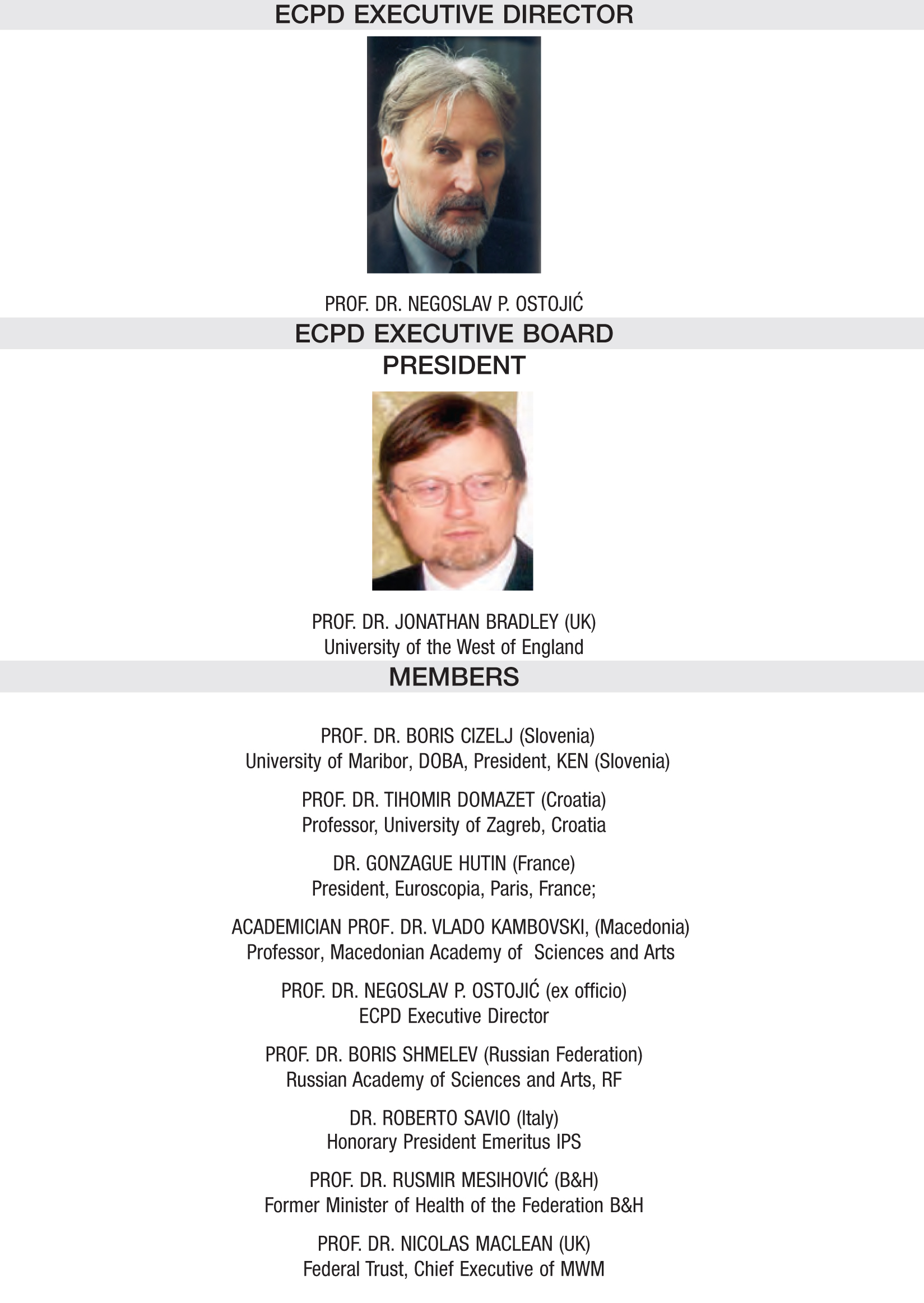
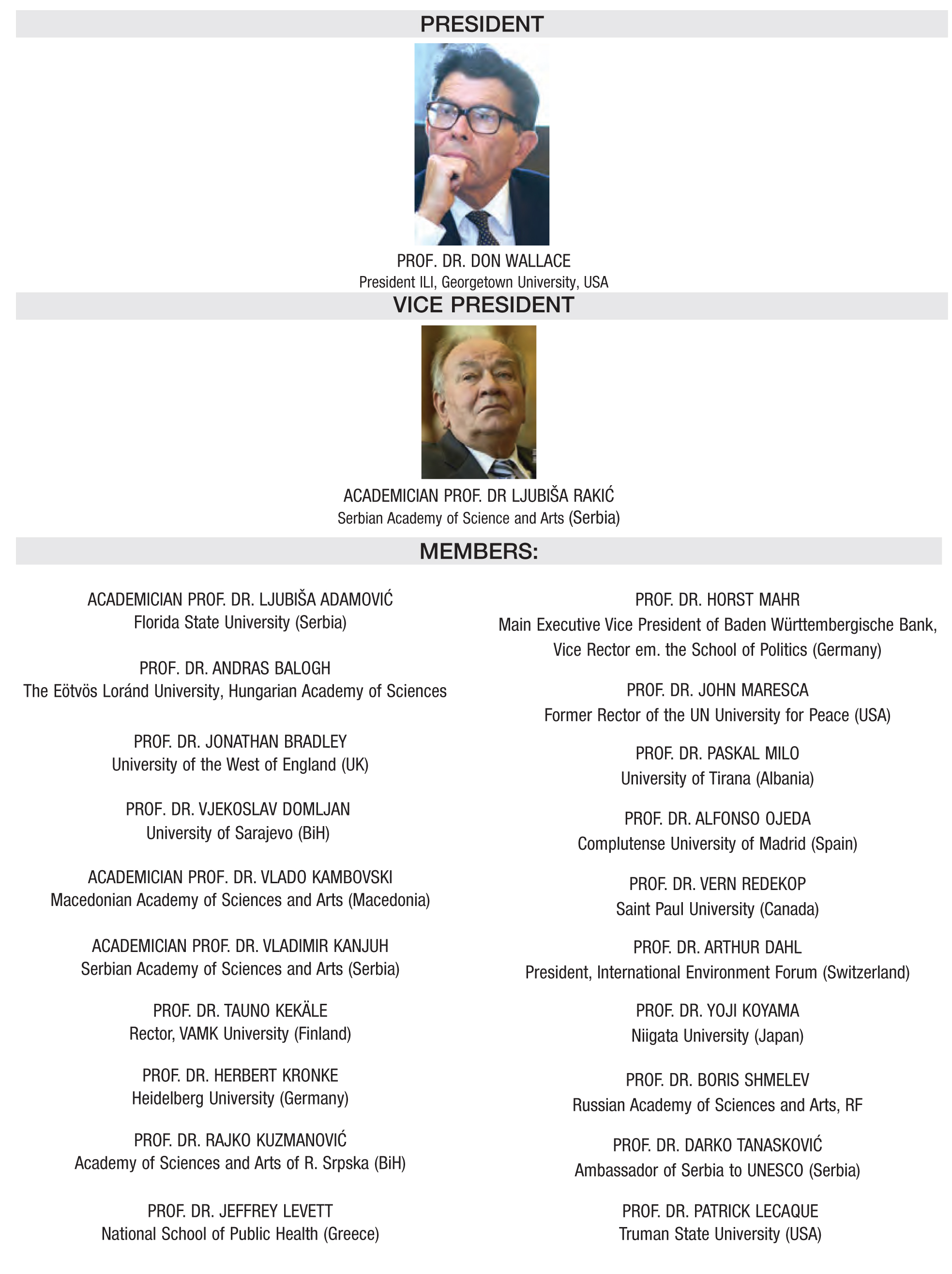
PRESIDENT
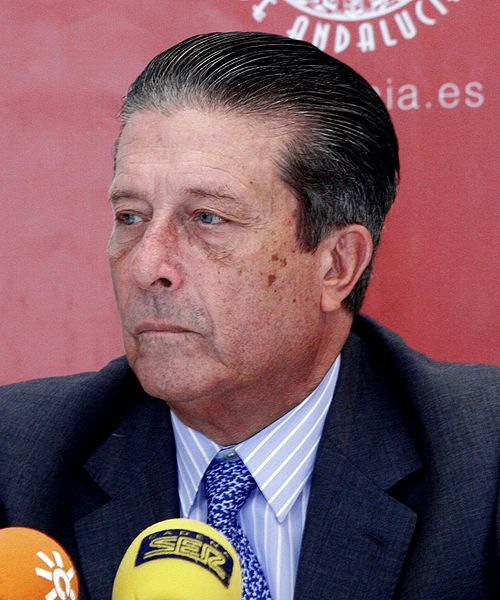 |
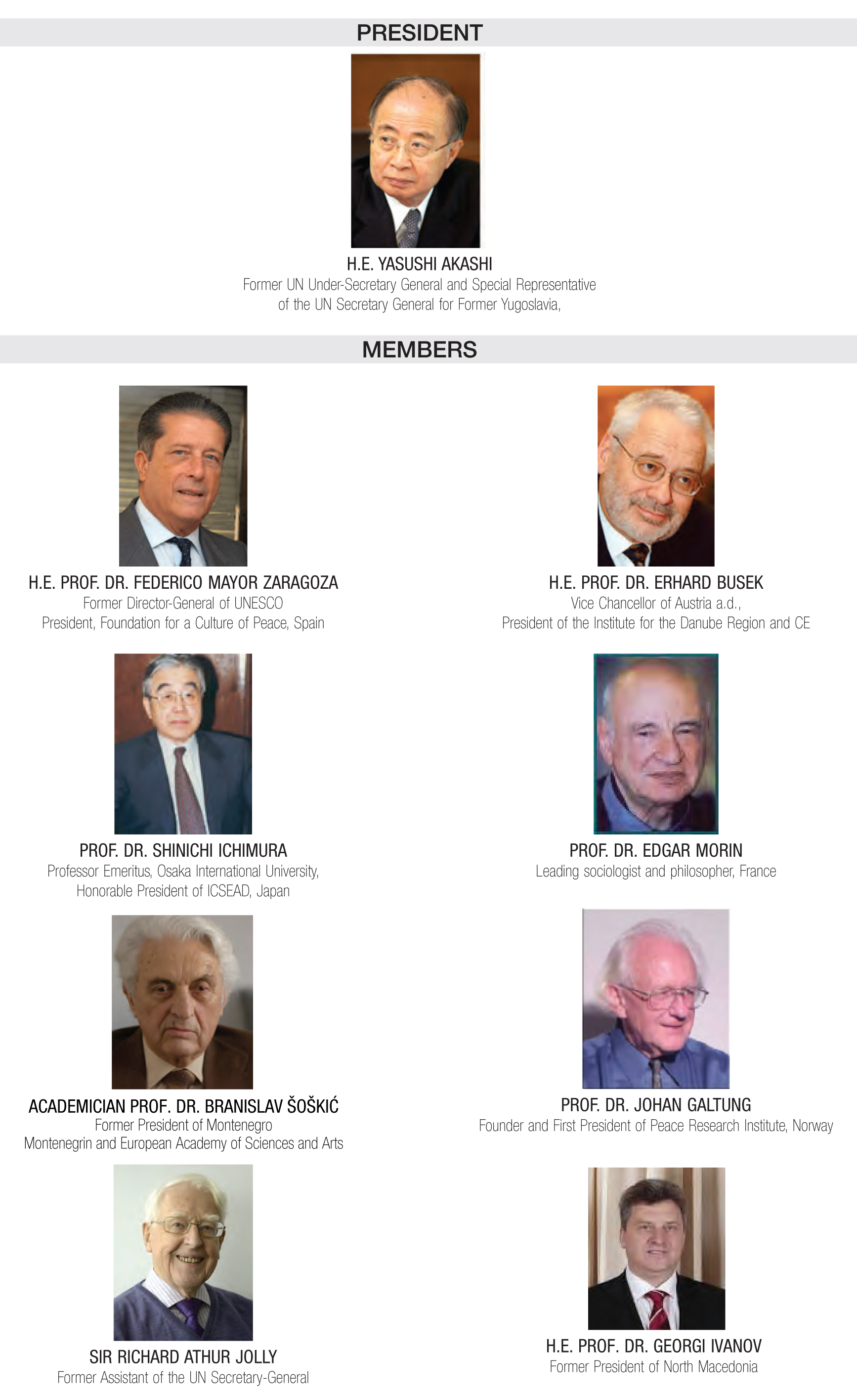
Numerous persons contributed greatly to the establishment, work and international reputation of the European Center for Peace and Development of the University for Peace established by the United Nations, including:
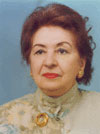 Prof. Simonida Marjanovic
Prof. Simonida Marjanovic
The ECPD Council is the highest ECPD governing body. The establishment of the Council was preceded by the ECPD International Organizing Committee, which was responsible for setting up the European Center for Peace and Development (ECPD) as an international educational and research institution with Headquarters in Belgrade. The President of the Committee was Professor Simonida Marjanović, initiator of the establishment of the ECPD, Vice-President of the Executive Board of UNESCO and Vice-President of the University for Peace Council. At its session held in Brasilia, Brazil, on February 15, 1989, the Committee decided to renounce itself into the ECPD Council and Professor Marjanović was elected the first President of the Council. The Council consists of members chosen “from the ranks of public, scientific and cultural workers with experience, qualifications and technical competence recognized in the world and devoted to the aims of the Center”. The ECPD Statute was adopted, which defined the functioning and management of ECPD as an autonomous educational and research institution.
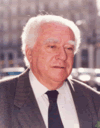 H.E. Paul - Marc Henry
H.E. Paul - Marc Henry
After Professor Marjanović passed away in March 1994, the second President of the ECPD Council became Prof. Dr Paul-Marc Henry, Ambassadeur de France, long standing Under-secretary General of the United Nations and Director General of the Special United Nations Fund for Development. His Excellency Paul-Marc Henry, as well as Professor Simonida Marjanović, made a tremendous contribution to the work and international reputation of the ECPD in performing its noble task – the promotion of peace and development in this turbulent part of the world. Prof. Dr Paul-Marc Henry presided over the ECPD Council exactly four years. Unfortunately, in March 1998, he passed away.
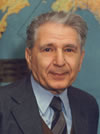
Gen. Pierre Marie Gallois
The third President of the ECPD Council became Gen. Dr Pierre-Marie Galois, the prominent French figure in the field of Geopolitics and geostrategy and one of the most prestigious ministers in the General De Gaul Government. In the first several years of his presidency, General Galois made a notable contribution to the work and international promotion of the ECPD. Later on, however, his governing activities were reduced, but General Galois remained Honorary President of the ECPD Council who still considerably supports the ECPD activities.
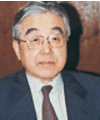
Prof. Shinichi Ichimura
One of the major the ECPD’s tasks – organizing and carrying out the ECPD postgraduate studies demanded that the Council set up establishment of the ECPD Academic Council, which is in charge of approving and channeling all the ECPD educational, research and international cooperation activities. The first President of ECPD Academic Council was Prof. Dr John Marcum, Director of the European Institute for Technology (EIT), Paris. At the first session of the ECPD Council held in Brasilia, Brazil, on February 15, 1989, it was decided that Prof. dr Simonida Marjanović, as the President of the ECPD Council, would also be the President of the ECPD Academic Council. H.E. Prof. Dr Paul-Marc Henry has also assumed both.
After the death of Paul-Marc Henry (March, 1998), Prof. Dr Shinichi Ichimura, a well-known Japanese expert in economic studies, became the fourth President of the ECPD Academic Council. Prof. Dr Ichimura was responsible for this position for more than five years, being at the same time the main lecturer at numerous ECPD postgraduate and specialized courses and seminars within economic and management studies.
At the end of 2003, Professor Ichimura decided to retire and devote his time to writing and publishing his books and studies in economic development. The position of the President of the ECPD Academic Council was assumed by Prof. Dr Takehiro Togo, a distinguished Japanese diplomat and professor of international relations, who was elected as the President of the ECPD Council.
Although the Resolution of the Council of the University for Peace relating to the establishment of the ECPD was adopted on January 20, 1983, the European Center for Peace and Development undertook its activities two and a half years later when the International Agreement on the Headquarters of the ECPD (July 1985) was concluded and came into effect. In the meantime, the basic governing and executive bodies of the ECPD were formed and the conditions for its operation were created, including the establishment of relations with organizations within the United Nations system, the development of a network of the ECPD associates and the like.
The Organizational Structure
The organizational structure of the ECPD consists of the: governing and executive bodies, affiliated organizations, operating units, scientific and special advisers, heads of specified activities, project managers, associates and others.
The main governing and executive bodies are:
The ECPD Honorary Council has been also established, whose members participate in a valuable and supportably way.
European Center for Peace and Development (ECPD)
University for Peace established by the United Nations
ECPD Headquarters
Terazije 41
11000 Belgrade
Serbia
office@ecpd.org.rs
+381 11 3246-041;
+381 11 3246-042;
+381 11 3240-673;